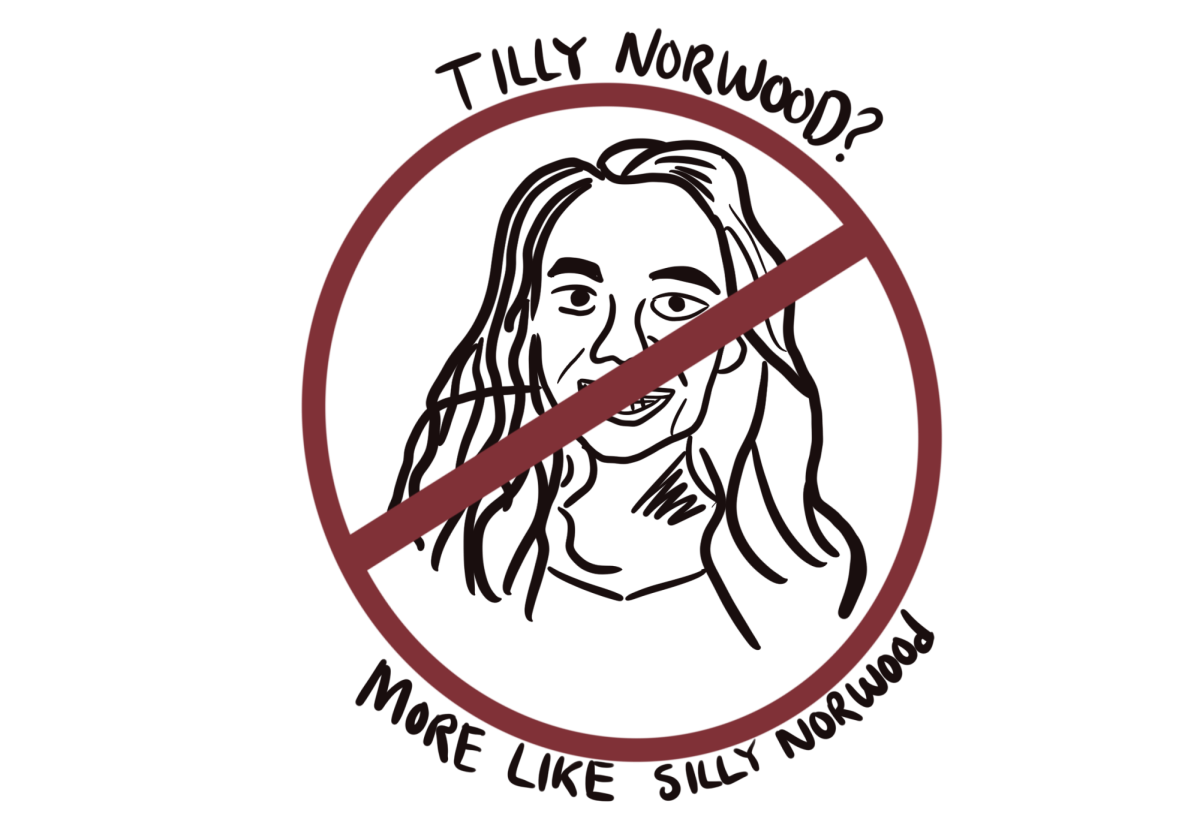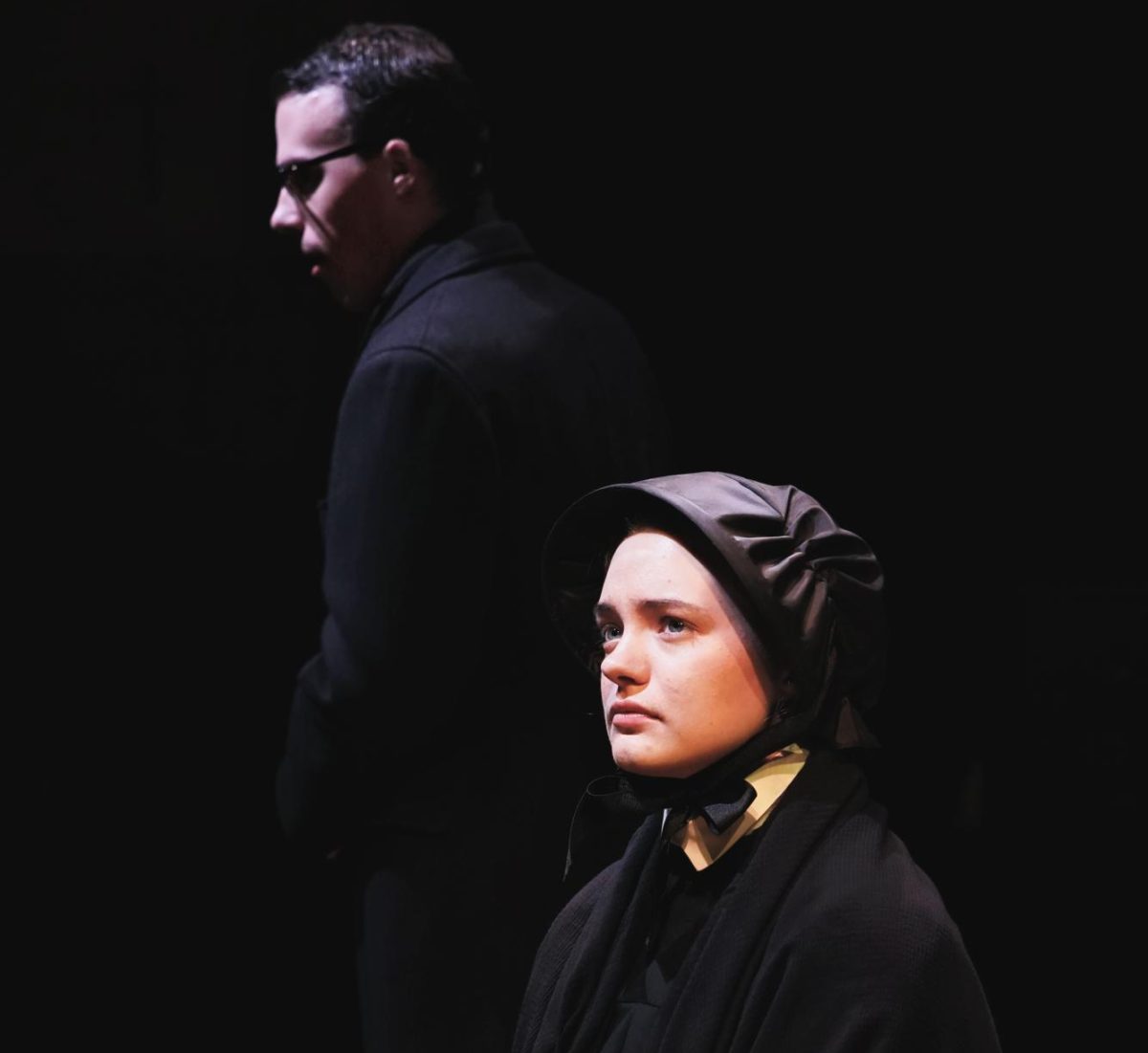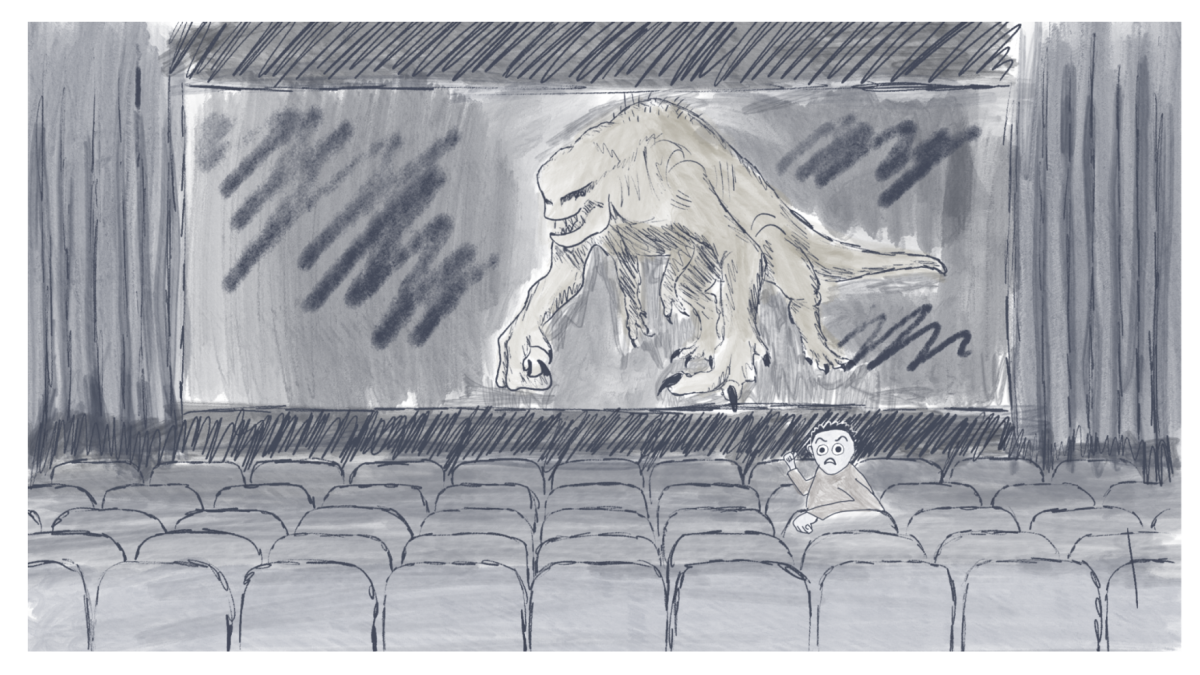This semester, the theater department welcomed new tenure-track faculty member Michelle Cowan-Gibbs. The Manitou Messenger sat down with Professor Gibbs for an interview.
Manitou Messenger:What did you do before you came to St. Olaf?
Professor Gibbs: I was a graduate student. Actually, I am still finishing up my doctoral studies at Bowling Green State University. My emphasis is in performance studies, particularly identity representation and race [and] performances of blackness. I am very interested in how the black body has been received in history and is currently being received. So I tend to write from a perspective of that in terms of theater, and then in terms of how that affects our everyday life. So that’s what I was interested in and doing before I came here teaching and working on my doctoral studies.
MM:Why St. Olaf?
PG: Why not St. Olaf? One of my students came in a couple days ago, and he called this place a “castle on a hill.” And I thought “how appropriate is that?” This is the type of institution that really values community. And I am somebody who really values community, particularly among multicultural and diverse audiences. I value that.
There’s lots to do here on the “castle on the hill.” And it keeps the students quite busy! But for the most part, I think that there is something really valuable about the experiences that Olaf students are encouraged to have that I really, really gravitate towards. You are all asked to consider your world – consider Olaf as a community – and then bring something back from it, something that helps percolate [and] helps keep us thinking about life and liberty and the pursuit of happiness. And that’s really exciting. Experience is awesome, really awesome. So I very much enjoy those two things here.
You guys are really bright. You’re very interested in what’s happening in the world and that’s something that really affects me. It makes me want to raise my game up in the classroom to challenge you even more. Because in a way, you guys get it. You have been blessed with a kind of insight into the world … and that’s exactly where I want to be.
After my teaching presentation – when I interviewed for the position – the room was packed full of students. And I thought “Oh, these students are really, really interested. They want to know who’s going to come into this position and what this person’s going to offer.”
That was so attractive from the very get-go. The room was packed and they were asking such intelligent questions about my research, about my teaching background … they really cared! And you can’t buy that. That’s just ingrained. That’s a cultural thing. You know, that is ingrained in the culture of Olaf itself. And that’s where I want to be.
MM:Do you have a favorite play or musical?
PG: I don’t think I have a favorite play — I like a lot of plays. I did go through this phase where I was about Detroit, because I am from Detroit … where everything I directed had something to do with the city in some way, shape or form.
I am partial to a playwright – her name is Dominique Morisseau – and she has written a three play cycle about Detroit and particularly looking at how history has influenced the ways in which we look at Detroit today … so I tend to really gravitate towards her plays.
I love August Wilson. It is my goal at St. Olaf to do an August Wilson piece. I am going to make that happen. I don’t know where I am going to find the brown people to get it to do it. But that’s going to be my challenge … I think his work is really – especially in terms of African-American history – really valuable to get that perspective of his interpretation of African-American history. And the characters are so richly written that I would love to give students that experience: to challenge them with a meaty text like that. So August Wilson is obviously a favorite playwright of mine.
And you know what, I don’t really have a favorite musical, but I have been wanting to do “Bye Bye Birdie” for a minute. And I mean doing “Bye Bye Birdie.” I mean taking that play apart; I’m gonna deconstruct it from the inside out, and I really want to look at celebrity, at the effects of celebrity-ism on the popular culture. I’ve been wanting to do that play for about three years. I just haven’t quite had the person-power to put up a play like that, especially at the institution I worked at before – we just didn’t have enough men to do that. But at Olaf, we have men! We have many of them to choose from, which is just so exciting and such a great enthusiastic theatre community.
And people are really excited about plays. It is a great time to be here and I’m quite grateful for the opportunity to be here.
MM:Is there anything you would like to say directly to St. Olaf students?
PG: Oh, thank you so much for welcoming me. God bless you. Thank you for being so generous to me and so welcoming. I’ve had many students send me emails to welcome me to the program, not just those who are theater majors, but those who I’ve just run into and said “hi” and exchanged information with. And they sent me an email saying, “we’re so glad you’re here.” And the faculty and staff as well who’ve just been so warm to me. I’ll be honest – it’s kind of scary coming into a role such as this, especially with the expectations I put on myself for what I’d like to achieve. And the St. Olaf community as a whole has been so welcoming to me and my family and it has just been really touching. So I’d like to say thank you so much for the warm welcome. And I’m excited about the future.





